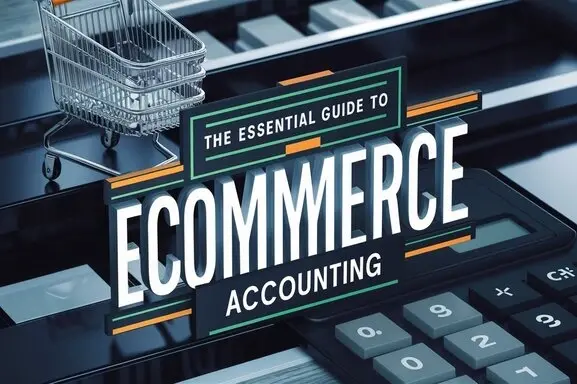The Essential Guide to eCommerce Accounting

Accounts payable is a process that is well understood in any organization due to its relevance in the financial sector. It includes following up on monies due to suppliers and other individuals and firms as well as making payments on time.
The full cycle of accounts payable consists of several key steps:
1. Receiving Goods and Services
The cycle starts when an organization decides to buy goods or services from a supplier through a purchase order. When delivered to the company, a check is made on the paperwork, and on the items to ensure they are the right quality, the correct price, and are in a usable condition.
2. Processing Invoices
When the goods and services are delivered and meet the required standards, the vendor then sends an invoice showing the amount due. This invoice reaches the accounts payable department for further processing and entry in the Accounting Information System. Invoice data that includes the vendor’s name, the amount, the date, the purchase order number, and the account number or account code are entered.
3. Invoice Approval
After an invoice has been generated, it undergoes an approval process to check on the accuracy of the invoice before it is paid as well as to confirm that the policies regarding purchases were adhered to. For instance, ensuring that the invoice has been matched to the right purchase order to check if billing details tally. Invoices may be rejected if something seems to be off or if more information from the vendor is needed.
4. Recording Liabilities
Once the invoice has been processed internally and the company has agreed to pay the supplier the accounts payable system records this as a liability. Some of the accounts that are normally involved include Accounts Payable, Expenses Account, and the Inventory Account. The recording of liabilities in this fashion affects financial statements as it provides information that states money is owed.
5. Payment Processing
The next step is to process the approved invoice for payment at the due date and time agreed with the supplier. Accounts payable personnel make the selection of the payment mode recommended by the vendor, which may include a check, ACH, wire transfer, or a purchasing card. To ensure an agreement is met before releasing payment, confirmation of details is done.
6. Payment Disbursement
The accounts payable department then releases the payment on the agreed set of conditions by the supplier. Terms on payments are normally 30, 60, or 90 days which implies that an amount invoiced is due in full 30, 60, or 90 days from the date of invoice. Late payments ruin vendor relationships and are not healthy for cash flows; therefore, paying on time is essential.
7. Payment Reconciliation
When payments are made from the bank account there is a need to record and document the activity. Accounts payable employees match payments made with the invoice or supplier’s statement to ensure proper recognition of the money out. This process reveals problems for solving which specific differences have been found.
8. Month & Year-End Close
This means that at the close of each month and particularly at the end of the fiscal year, there are outstanding invoices from vendors to be paid or perhaps payments made in progress hence the need to do an accrual basis of accounting. Transactions like the ones that occur through recurring payments, expenses that are accrued and the generation of financial reports occur within the closing periods.
In Summary
The full accounts payable cycle includes the simplified purchase request, accounts payable, payment, and reconciliation with the accountants. This detailed process controls and regulates the payments, guaranteeing that suppliers are paid satisfactorily for products and services that enable the company to run efficiently. Effective accounts payable procedures also keep clean records which are helpful for decisions related to business and control of financial resources. It also helps to avoid issues such as duplicate billing and fraudulent payments where an unscrupulous supplier submits a bill that has already been paid.
Contact us here for Accounting services now!

